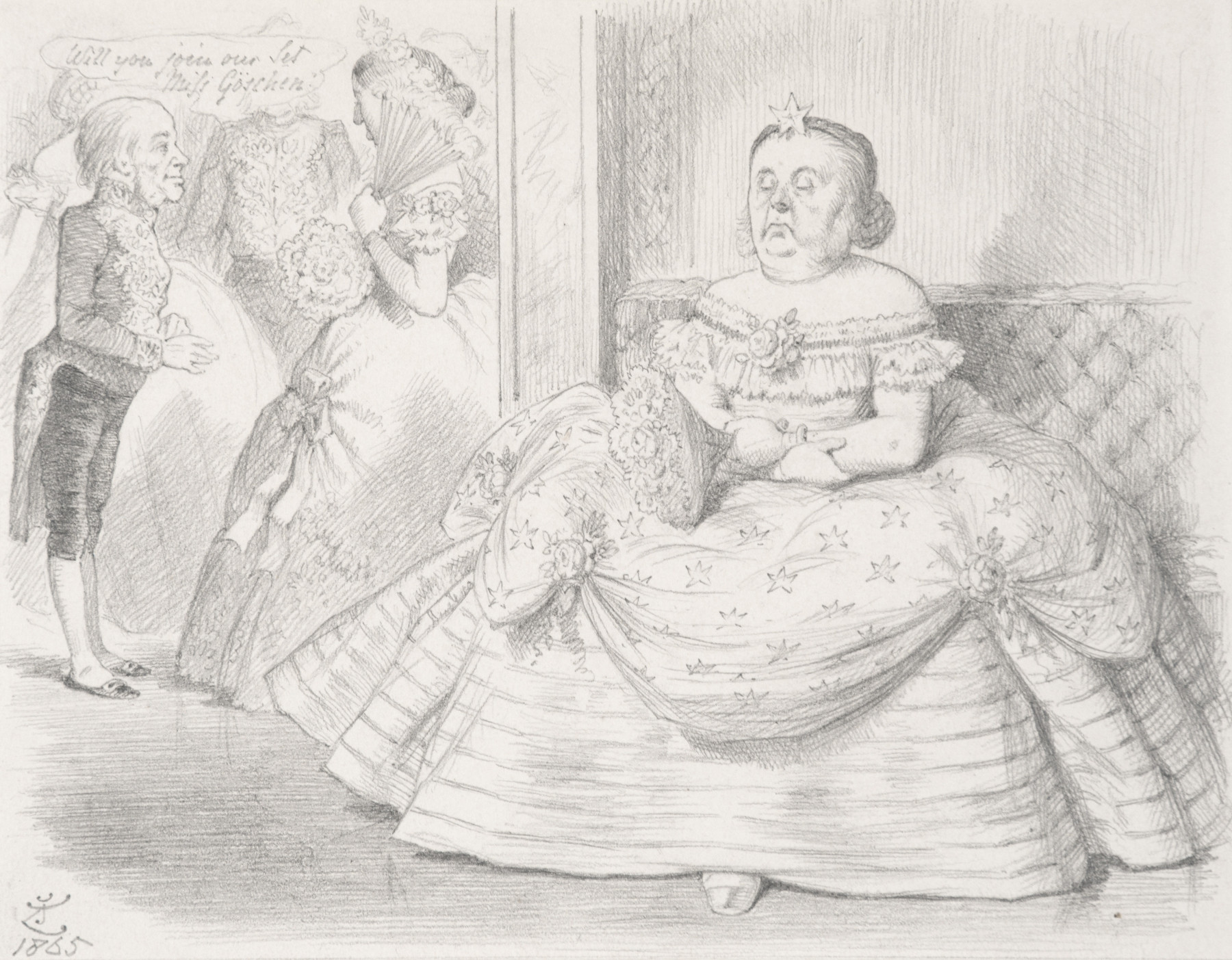
(click image to enlarge)
In October 1865, Lord John Russell became Liberal Prime Minister for the second time, following the death of Lord Palmerston. Tenniel’s cartoon presents Russell’s attempts to build his ministry as if he were courting ladies at a social event. He can be seen talking to ‘Miss Göschen’ in the background of the image and, in the November, George Goschen would become Vice-President of the Board of Trade and Paymaster-General. The verses that accompany the cartoon in Punch also mention William Edward Forster, who would become Under-Secretary of State for the Colonies in the same month, and James Stansfeld, who would become Under-Secretary of State for India in February 1866.
However, the image is dominated by ‘Miss Bright’, a caricature of John Bright, the Liberal MP for Birmingham, who, sitting alone in a separate room, is a ‘political “wall-flower”’. Though one of the greatest orators of the age, who was key to the success of the Liberal Party, he had often disagreed with its leading figures, including Russell, on significant issues. For instance, in 1848, when Russell brought forward the anti-Catholic ‘Ecclesiastical Titles Bill’, Bright opposed it as ‘a little, paltry, miserable measure’, and foretold its failure. Similarly, in 1854, Russell defended Britain’s involvement in the Crimean War, while Bright was against it. So the caption to the cartoon suggests that Russell is unlikely to invite Bright to join his ministry and that, even if he does, he would decline. In the event, he toured the country and spoke in support of parliamentary reform, during Russell’s short-lived ministry, which lasted only until 1866. He would later serve in William Gladstone’s cabinets in various positions between 1868 and 1882.